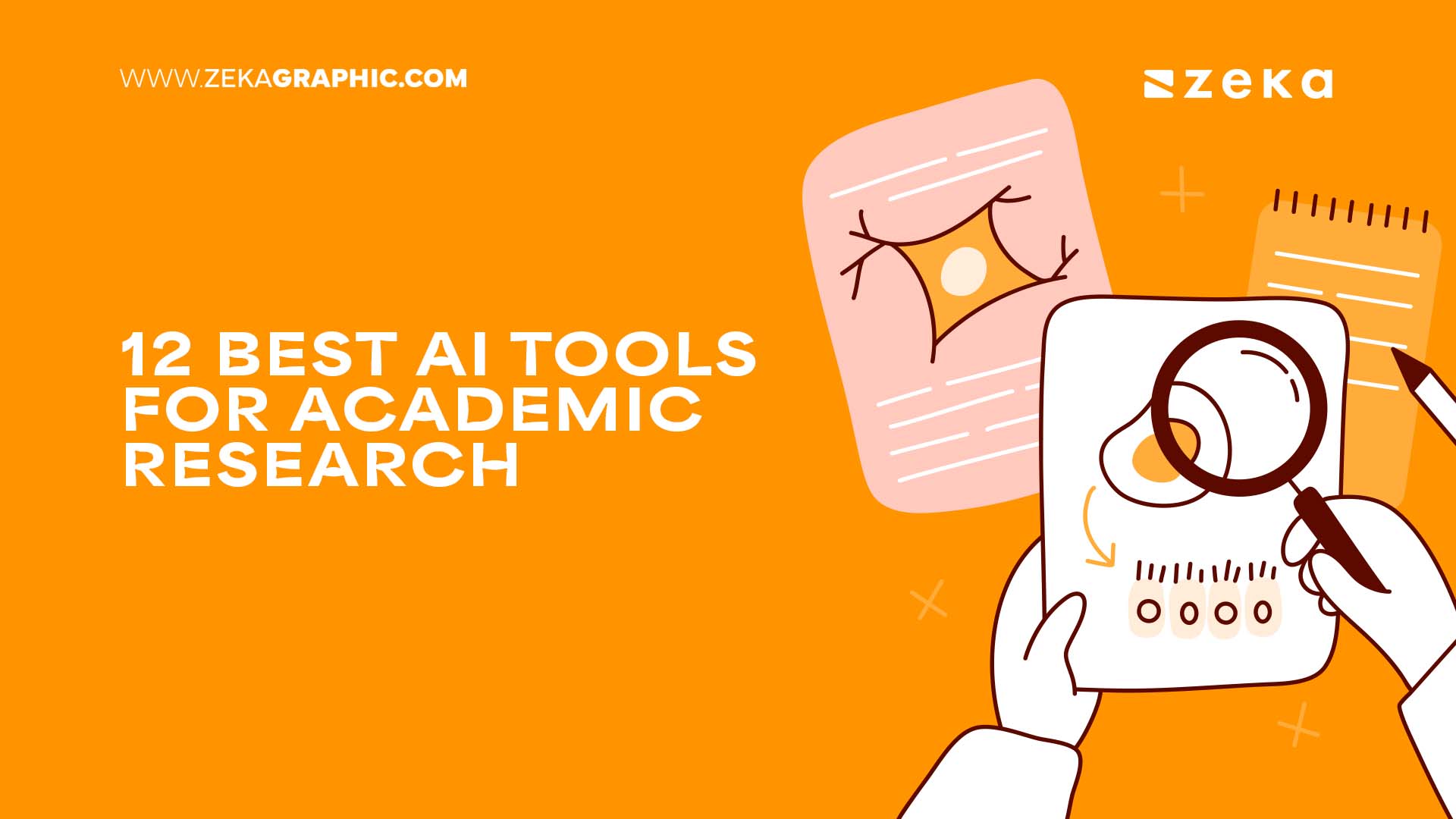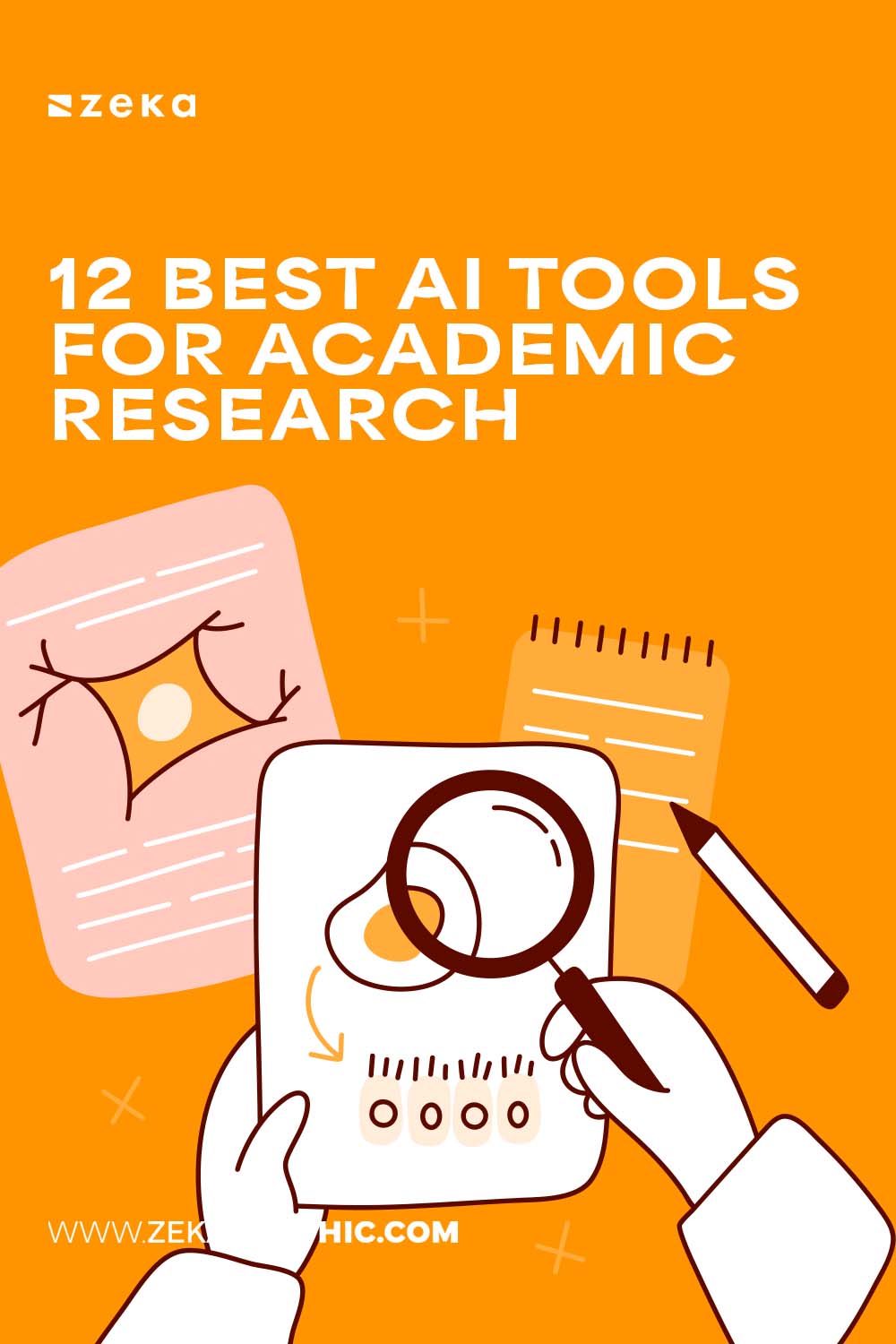
Today, in 2025, AI plays a vital role in academic research, which is increasingly collaborative, data-driven, and fast. From students and PhD candidates to full career researchers, academic research is much influenced by AI tools that are now an integral part of traditional and emerging research methods.
The 12 best AI tools for academic research will be discussed in this guide. Each tool will be explained with its mechanism, its special features, and the reason why the 12th and last tool – Litero – is the best AI tool for research among other tools.
Advertisment
While research in academia has been around for a long time, a decade before there was a lot of manual work involved in research workflows. This included searching various databases to build up a bibliography, cross-referencing citations, formatting them according to academic publications, and creating summaries. Today, these repetitive workflows of searching through data, parsing through libraries, collating information and creating bibliographies can be done by AI tools in a matter of seconds. Thus, now researchers have more time on their hands to apply critical thinking on the relevant domain, interpreting data and creating original insights unlike before.
The top-rated AI tools are more than just content generators. They also act as a research partner by providing recommendations on relevant research papers, summarizing research papers, visualizing connections between ideas, and even checking for proper citations and plagiarism.
At last, when it comes to the choice of the AI tool for your research needs, take the following into account:
Advertisment
Here’s our ranking of the best tools on the market today. Read on till the end to find out more about Litero, which is the premium academic AI that we decided to reserve for last.
Best for: Speedy literature reviews. Scholarcy produces a summary of academic papers that extracts key arguments, methods and findings in an easy-to-read format. It’s useful for achieving a rapid overview of a new field.
Ideal Use: Systematic reviews. Elicit is useful for finding existing studies, extracting data in a structured format, and organizing results for easy comparison and analysis.
Best for: Citation analysis. Scite provides information not only on who cited a paper but also whether these citations had a positive, negative, or neutral sentiment.
Best for: Getting articles behind paywalls. If you are having an institution access, EndNote Click is the best choice for you to find and download the full-text PDF with ease.
Best for: Finding new papers. Similar to music streaming services, its recommendation engine functions as a personalized tool that surfaces research papers relevant to one’s areas of interest.
Advertisment
Best for: Literature landscape mapping. Connected Papers is a tool that provides visual graphs of connections between studies and helps in identifying gaps in the research.
Best for: Conceptual understanding. This AI can read and analyze papers at a conceptual level, rather than merely recognizing key terms, which gives it potential for cross-disciplinary applications.
Best for: Cloud referencing. Integrates with Google Docs perfectly and lets you keep track of citations without much effort.
Best for: Research groups. One of the best classic tools for reference management and PDF annotation for collaboration.
Advertisment
Best for: Conversational document analysis. Lets you have a “dialogue” with a PDF, posing detailed inquiries and receiving immediate replies derived from the document.
Ideal for: Improving scholarly writing.Offers all-in-one citation assistance, paraphrasing, and grammar checking.
We’ve saved the standout tool for last. Litero AI research paper writer isn’t about producing text — it’s about guiding you through the research and writing process with integrity and efficiency.
Why Litero excels:
Whether you’re working on a term paper or a PhD thesis, Litero ai offers the most balanced mix of speed, accuracy, and ethical safeguards of any tool in 2025.
AI’s increasing role in academic research brings excitement, curiosity, and — quite naturally — some worries. Here is an in-depth FAQ on the top questions people have when contemplating the adoption of AI tools in their research processes.
Q1: Does using AI in academic research count as cheating?
Not necessarily. It fully depends on what the AI is used for. Research bodies and universities usually make a difference between using AI as a tool in support of something more meaningful to you and using it as a replacement for that.
If you input a topic into AI and take the text output and submit it unaltered, you are not adding value to the topic with your own intellect – and this is frowned upon by most institutions as malpractice.
Responsible use means:
Think of it like using a research assistant: you guide the work, and you remain fully responsible for the content.
Q2: Can I still learn and improve my skills if AI is helping me?
I completely agree. Indeed, a purposefully used AI can enhance your learning speed. Several scholars utilize AI-produced outlines or drafts to serve as learning models: when one can recognize organized structure, logical coherence, and accurate citation format, it is significantly simpler to reproduce these abilities in a non-automated manner.
You can:
The key is engagement: don’t just accept what the AI produces — interact with it, question it, and refine it.
Q3: What’s the difference between free and paid AI research tools?
It is also important to note that free AI tools, while good for rapid brainstorming or drafting of texts, have the following shortcomings:
For important academic work – dissertation, journal article, funded research project, etc. – the additional accuracy and functionality of a paid tool can translate to time and peace of mind.
Q4: How do I avoid fake or unreliable citations from AI?
AI-powered research is often plagued with fake citations. Here are some ways to prevent that:
Remember: even if the AI generates a convincing-looking reference, you are responsible for ensuring it’s real.
Q5: Will AI replace researchers entirely?
Definitely not – AI can never take the place of human researchers’ creativity, critical thinking, and nuanced judgments. But AI can handle menial and mechanical work, for instance:
In this sense, technology allows the researcher to devote time to the analysis of the results obtained, the original argumentation and the proposal of new lines of investigation – areas where artificial intelligence cannot produce genuine results.
Q6: Can AI help me with multilingual research?
Indeed. Several contemporary artificial intelligence applications possess the capability to translate, summarize, and even cross reference materials in a variety of languages. This feature could prove useful in cases where your discipline depends on literature published internationally.
For example, an AI tool can:
Still, nuance matters — for critical passages, it’s best to verify translations with a human expert.
Q7: How secure is my data when using AI research tools?
This depends on the provider. Reputable AI tools for academic use clearly state:
Before uploading sensitive research — especially unpublished work or proprietary data — read the tool’s privacy policy. Look for end-to-end encryption and an explicit promise that your content will remain private.
Q8: How can AI assist with group research projects?
When various writers work together, there is risk of a lack of consistency in tone, style and formatting. So, these tools can help in achieving uniformity through:
This works best when all group members review the AI’s changes so the final result accurately reflects everyone’s contributions.
Q9: Are AI tools equally useful for all academic disciplines?
AI tools adapt differently depending on the subject area:
The more context and relevant sources you provide, the more accurate the AI’s output will be.
Advertisment
In conclusion, each AI research assistant mentioned in this list has its unique strengths, but Litero is the best among them for its unique combination of advanced features, academic honesty, and user-friendliness. It helps you shape your entire research journey right from the idea stage to the final output.
In short, if you as a student, educator, or a librarian professional are seeking utmost accuracy, efficiency and ethics – it is undoubtedly the most comprehensive and reliable solution available in 2025.
Advertisment
Pin it for later!

If you found this post useful you might like to read these post about Graphic Design Inspiration.
Advertisment
If you like this post share it on your social media!
Advertisment
Want to make your Business Grow with Creative design?
Advertisment
Advertisment